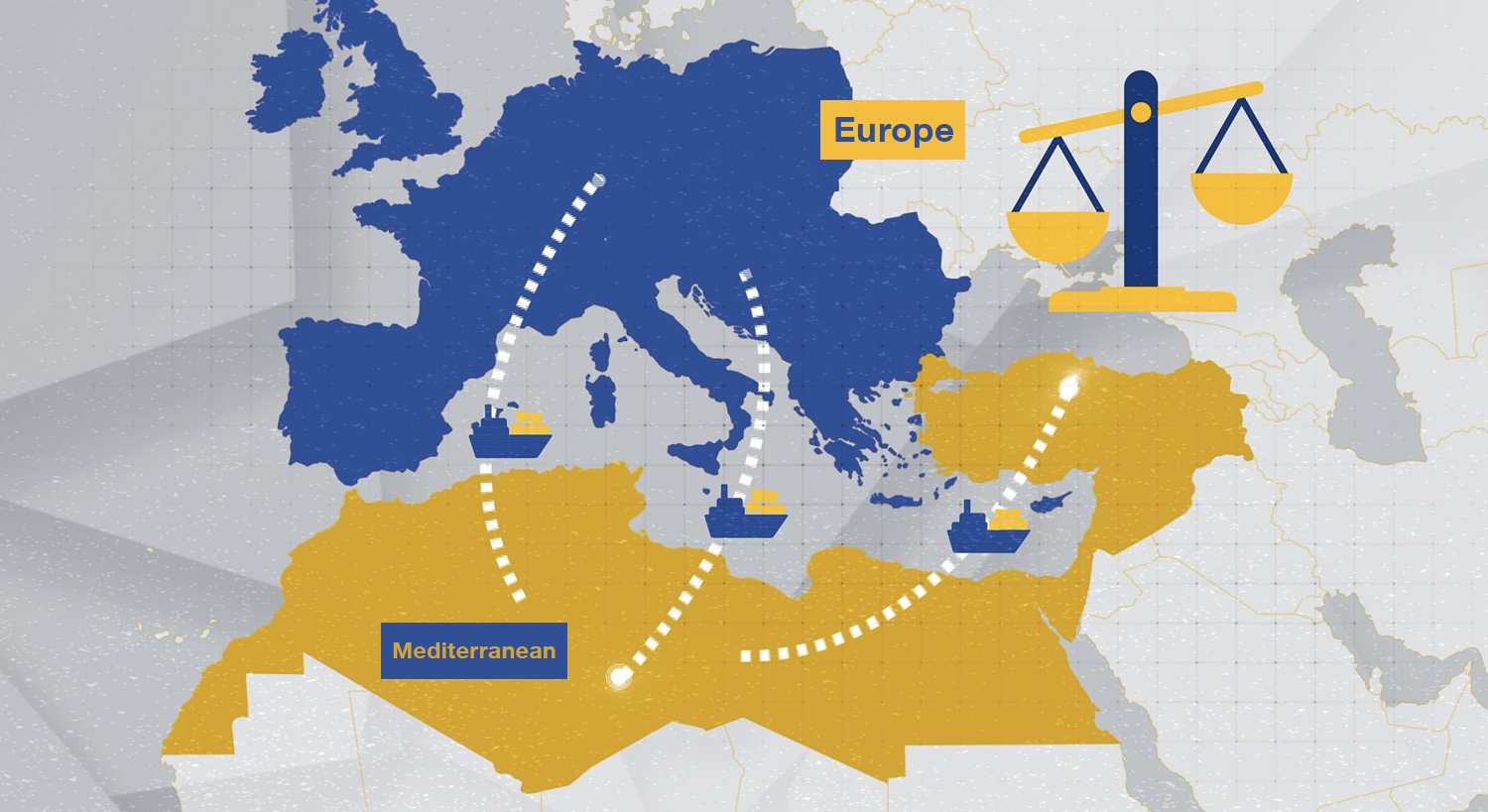

Economic Development and Social Dialogue - Click here to download full report - Cliquez ici pour la version française
Mohammed Saïd Saadi, economist and former minister
Introduction
The following research paper seeks to answer the following main question:
How does the “Renewed Partnership with the Mediterranean,” proposed by the European Union (EU) in February 2021 to the Southern Mediterranean countries (SMCs), diverge from the neoliberal model that has characterised Euro-Mediterranean relations since the launch of the Euro-Mediterranean Partnership (Euromed), also known as “The Barcelona Process,” in 1995? Another underlying issue we ought to consider is the question of whether the “more for more” approach (more commercial integration, more cooperation) is still valid, considering the new requirements imposed on Southern Mediterranean countries (SMCs) following the Arab Spring and the health crisis caused by the COVID-19 pandemic. What relevant alternatives could we propose in the following areas: economic development, the multidimensional crisis linked to COVID-19 and Free Trade Agreements (FTA)/the Deep and Comprehensive Free Trade Areas (DCFTA)?
In order to address these questions, we conducted a literature and analytical review of EU documents as well as academic and scientific publications on Euro-Mediterranean relations. Arguments are evidenced by references relating to the situation in certain SMCs. Unfortunately, time constraints and circumstances related to COVID-19 have made it impossible to conduct Key Informant Interviews (KIIs) with subject-matter experts.
Following a brief historical review of the evolution of relations between SMCs and the EU, we will evaluate the EU’s commercial and investment policies vis-à-vis SMCs in the second part of the paper, and, in the third part, we will focus on the New Agenda for the Mediterranean and its potential to contribute to economic development and the promotion of the economic, social and environmental rights of SMC populations. In the fourth part, we will examine the impact of the COVID-19 crisis on SMCs and the EU’s role in mitigating its negative effects. In the fifth part, we will analyse the risks of the Deep and Comprehensive Free Trade Areas (DCFTA) project proposed by the EU to SMCs. Finally, we will offer a series of recommendations to build relations between the EU and SMCs based on solidarity and true partnership at the commercial and investment level.
Economic Development and Social Dialogue - Click here to download full report
Mohammed Saïd Saadi, economist and former minister
En Francais
DEVELOPPEMENT ECONOMIQUE ET DIALOGUE SOCIAL - Rapport Complet
Mohammed Saïd Saadi, économiste et ancien ministre
Introduction
Le présent papier a pour objet de répondre à la question principale suivante:
Dans quelle mesure le” Partenariat renouvelé avec la Méditerranée” proposé par l’Union européenne (UE) aux pays du sud méditerranéen (PSM) en février 2021 constitue une rupture avec le modèle néolibéral qui a marqué les relations euro-méditerranéennes depuis le lancement du Partenariat euro-méditerranéen (PEM), appelé également « Processus de Barcelone », en 1995? Une deuxième question sous-jacente consiste à se demander si l’approche “plus pour plus” (plus d’intégration commerciale, plus de coopération) est toujours valable face aux nouvelles exigences qui s’imposent aux Pays du Sud de la Méditerranée (PSM) après l’avènement du Printemps arabe et la crise sanitaire du Covid 19? Quels éléments d’alternative peut-on proposer à ce sujet dans les domaines suivants: développement économique, crise multidimensionnelle liée au Covid-19, Accords de libre- échange/Accord de Libre Échange Complet et Approfondi (ALECA)?
Pour aborder cette problématique, nous nous sommes basé sur une recherche documentaire et analytique axée sur les documents produits par l’Union européenne et des publications académiques et scientifiques menées sur les relations euro-méditerranéennes. L’argumentation est illustrée par des références à la situation dans certains PSM. Malheureusement, les contraintes de temps et les circonstances liées à la crise sanitaire du Covid-19 ont rendu difficile la réalisation d’interviews avec des personnes-ressources ayant une expertise dans le domaine.
Après un bref rappel historique de l’évolution des relations entre les PSM et l’UE, nous évaluerons dans une deuxième partie les politiques commerciales et d’investissement de l’UE vis-à-vis des PSM avant de nous intéresser dans une troisième partie à l’Agenda pour la Méditerranée et sa capacité à contribuer au développement économique et à la promotion des droits économiques, sociaux et environnementaux des peuples des PSM. Nous consacrerons la quatrième partie à l’étude de l’impact de la crise du Covid-19 sur les PSM et au rôle joué par l’UE pour atténuer ses effets négatifs. Nous analyserons dans une cinquième partie les risques que représente le projet d’accord de libre-échange complet et approfondi (ALECA) proposé par l’UE européenne aux PSM. Nous présenterons, enfin, des recommandations pour bâtir les relations entre l’UE et les PSM sur des bases de solidarité et de partenariat réel en matière commerciale et d’investissement.
DEVELOPPEMENT ECONOMIQUE ET DIALOGUE SOCIAL - Rapport Complet
Mohammed Saïd Saadi, économiste et ancien ministre
Recent publications

